TWTW: The World This Week / Episode #82
No squeaker in Russia…TikTok on the ropes?....Haiti on the boil…food arrives in Gaza—too little, too late?....where in the world’s that heavenly coffee? And cartoonist Chappatte on battling airfreight
This weekly feature for Andelman Unleashed, continues on its mission to explore how other nations are reporting and commenting on the United States, and how they are viewing the rest of the world.
Coming to you today from Paris….with apologies: a trifle late as we’ve awaited first returns from Russia’s landmark election—of sorts.
Elections 2024: Russia
Surprise: Vladimir Putin’s the winner—re-elected to a fifth term as president of Russia that will keep him in office until (at least) 2030 and his 77th birthday. The whole world was watching this weekend, not that there was ever much drama or uncertainty as to the result. But Vladimir Putin did in fact cement his hold over the Kremlin, over Russia, and over his war in Ukraine at what masqueraded as a ballot box.
Shortly after the final voting closed at 8 pm Moscow time, the first official results gave Putin 87.97% of the vote, surpassing his previous high of 76.7% in 2018 and indeed higher than all his previous four elections. His results surged as high as 96% of the vote in Belgorod, the area near the Ukrainian frontier that has been the subject of a number of drone attacks.
The Russian news agency Tass put turnout at 74.2% of the electorate of 144 million voters. In all, it was just the strength Putin was seeking to press for the kinds of actions that would only cement his hold over the country and over the war he launched in Ukraine.
However, there were also “protests” at polling stations across Russia and beyond, called for by supporters of assassinated Putin opponent Alexei Navalny who urged all those who would have supported his candidacy to show up precisely at noon in their time zones. It did, of course, turn out to be a valiant, if futile, gesture.
It may be days before final “results” can be assembled—and where necessary manipulated—across the 11 time zones that comprise this vast nation. But there’s never been any real doubt. And there’s every evidence that tomorrow, March 18, Putin is planning a victory bash in Moscow to celebrate his six more years at the helm.
As veteran Russian journalist Mikhail Zygar wrote for the Atlantic Council:
The lack of suspense surrounding the result of the vote does not mean that it will not be meaningful. On the contrary, this ritual is a political watershed that will determine the landscape in Russia for years to come—and possibly what Russia will look like after Putin finally passes from the scene. That is because, in the absence of institutions, Russian politics are effectively court politics, dominated by the clan battles within the Kremlin leader’s inner circle.
And presiding over these clans, now more powerful than ever, is Vladimir Putin. The world has already been taking notice. Not surprisingly, it’s London’s The Economist that puts the stakes impeccably. Over a headline:
Rogue Russia threatens the world, not just Ukraine
The West must show its enemy is Vladimir Putin, not 143m ordinary Russians
Then the editors elaborate:
The election he will win on March 17th will be a sham. But it should nonetheless be a wake-up call for the West. Far from collapsing, Russia’s regime has proved resilient. And Mr Putin’s ambitions pose a long-term threat that goes far beyond Ukraine. He could spread more discord in Africa and the Middle East, cripple the UN and put nuclear weapons in space. The West needs a long-term strategy for a rogue Russia that goes much further than helping Ukraine. Right now it doesn’t have one. It also needs to show that its enemy is Mr Putin, not 143m Russian people.
The stakes are clearly enormous:
[Russia] has morphed into a nihilistic and unpredictable foe of the liberal world order, bent on disruption and sabotage. It is like North Korea or Iran on steroids, armed with thousands of nuclear warheads.
But there are some brave souls even within Russia who found a way to protest the absence of real choice at any cost … here, from The Guardian of London is CCTV footage of a woman pouring ink into a Russian ballot box …
And then the quite immediate dénouement…off to the gulag….
Looking ahead, meanwhile, as Wiktoria Bielaszyn reported in the leading Polish daily Wyborcza:
Putin is afraid of the opposition that has fled abroad. Political assassinations are a matter of time. Ivan Zhdanov, a Russian opposition lawyer: “Those most at risk are those who, after leaving the country, openly criticize the Kremlin regime and have real influence on Russians.”
And then there are the hundreds of thousands living abroad, many with enormous followings. In many cases it’s …
About tenderness, about pride, about love, and about rage.
As for how the Kremlin itself has been covering it? Readers across the nation woke up Saturday, mid-way through the election process, to this headline in Pravda [‘Truth’], the Kremlin’s mouthpiece, Dmitri Plotnikov writing:
10 years of freedom. How the Crimean peninsula saved Russia's identity.
The Crimean referendum became a beacon of Russia's choice of independence. So, Crimea is celebrating the 10th anniversary of that same referendum.
Indeed, the timing of the election was quite pointed—coinciding with the 10th anniversary of Russia’s seizure of Crimea from Ukraine. And it’s only getting worse. Germany’s Deutsche Welle explored this week how “As Russia tightens its borders, individuals suspected of dissent, especially those commenting on the war in Ukraine, are subjected to rigorous checks and questioning.”
When something objectionable is found by officers, the person is then arrested on the pretext of having committed an offense like swearing in public, disobeying police officers or something similar. In some cases, this arrest can happen a few days after the person crossed into Russia….
This was the case for Yuri Malev, a Russian-American dual national. The 60-year-old entered Russia in December 2023 and was arrested in St. Petersburg two weeks later. He was taken to a pre-trial detention center and accused of "rehabilitating Nazism." Russian officials based their accusation on two posts Malev had made on the Russian Odnoklassniki [‘Classmates’] social network against the war in Ukraine. A retiree in St. Petersburg had reported Malev.
How others see America
Who’s leading? No one, apparently
Sadly, though clearly Putin aspires to global leadership of some sort, as does Donald Trump, and Joe Biden simply wants to keep on leading, while others in other parts of the world see a profound and destabilizing vacuum of any leadership.
The veteran editor-in-chief emeritus of Le Monde explained in her column:
Today, the United States does not lead “from behind”: it does not lead, period. The absence of a major player capable of influencing the course of events in the Middle East illustrates the current state of the world, where no power is any longer able to impose order… the state of the world in 2024: a world where several great powers rub shoulders, monitor each other, compete, confront, or cooperate depending on the issue, but where none succeeds anymore to impose order…. At least for the moment: as everyone knows, nature abhors a vacuum.
Tik tick tock…
There’s been no shortage of news in America about Donald Trump, Joe Biden, and conflicts across the board and across the aisles in Washington. But what has transfixed much of the world this week is what the United States is going to do about TikTok. Bhagyashree Garekar, US bureau chief of Singapore’s Straits Times suggested a reason her paper was so interested: TikTok chief executive Chew Shou Zi…is a Singaporean, not even a mainland Chinese.
As Garekar reported:
Citing risks to national security, the United States is moving towards forcing the divestiture or ban of a made-in-China app that millions of Americans love. Lawmakers and top intelligence officials say TikTok threatens national interests because it is owned by a Chinese company, which leaves open the possibility that Beijing can use the app to gather personal data on Americans, manipulate public opinion or distribute malicious software.
But the chatter about TikTok in cafes and online forums is less cut and dried. Americans remain to be convinced that banning TikTok is in their best interests. Only 31% of Americans support a nationwide ban on TikTok…another 35% oppose the ban while 31% are neutral.
“If I want to sell my personal data to a Chinese company, I should be able to, unless I have top secret personal data,” wrote one netizen….He was one of many criticising the Bill as a challenge to the constitutional right to free speech and a case of overreach of government power.
“Is TikTok worse than Facebook or YouTube or Google in how it mops up your info to promote content or ads? They could all do a lot better in assuring users on what they do with our data,” said Mr Tim Sorkin, a law student. “Banning an app is something China would do. It is un-American. What’s the difference between us and China then?”
Indeed, not surprisingly, the Chinese government’s own newspaper People’s Daily had a similar take:
And it’s not the only place TikTok’s in trouble, as Le Monde reported:
In the midst of turmoil in the United States where it risks being banned due in particular to suspicions of espionage, the platform owned by the Chinese giant ByteDance was fined 10 million euros on Thursday March 14 in Italy. The Competition and Market Authority (AGCM) in the country accuses it of having allowed videos to spread that are “likely to threaten the psychophysical security of users, in particular if they are minors and vulnerable.”
Followed the next day by this word that astonished nearly everyone:
“It’s a great deal and I'm going to put together a group to buy TikTok,” said Donald Trump's former Treasury Secretary, Steve Mnuchin….”The Chinese would never let an American company own something like that in China.”
[Meanwhile] the Chinese government has denounced [this as] an attempted theft: “It is the logic of theft to see something good and try to seize it by any means necessary,” said Wang Wenbin, spokesperson for the Chinese government.
Andelman truly unleashed
We had a landmark event last Tuesday in Paris, hosted by the inimitable Adrian Leeds, where we talked about the shape of worlds gone by, the Unleashed one where we live and work, and thoughts of future worlds to come. To watch some or all of these two hours, just click here:
How others see the World
Haiti disintegrates
For years, Haiti has been a meta-stable corner of the Caribbean, but now it has turned positively toxic. The Paris collective Cartooning for Peace published an excellent summary of how we’ve gotten here and a suggestion from the great French cartoonist Yas of just where we now stand:
For two weeks, the gang violence that had already consumed Haiti for years has taken on a dramatic dimension. The attack on two prisons by gangs enabled the escape of thousands of criminals, who have since taken control of the capital, Port-au-Prince, plunging it into chaos.
Armed gangs attack law enforcement and institutions, causing hundreds of victims and thousands of displaced people. They paralyze ports and airports, threatening the island with serious shortages. Following an emergency meeting of the Caribbean Community in Jamaica on March 11, Haitian Prime Minister Ariel Henry resigned, following the wishes of gang leaders, such as Jimmy "Barbecue" Chérizier, and a part of the population who blames the State for this situation. Alarmed, the UN called this week for “urgent action” to avoid civil war.
Elaborating, the Spanish daily El Pais reported:
The National Police appears [itself to be] a target of attacks by criminal gangs. Two weeks ago, in addition to the attack against the national penitentiary, these groups attacked police stations and police barracks, as well as the corporation's academy, which the bandits looted. The attack left at least six police officers murdered and nine corporation facilities burned and looted, as reported by the civil organization National Network in Defense of Human Rights….
The coordinated attack two weeks ago showed the organizational capacity of these groups, which control a good part of the capital.
The Middle East disintegrates
The headline in Le Monde, over its report on the arrival of the first of what is hoped will be a flotilla of aid by sea, says it all:
“Gaza: cacophony in humanitarian aid.”
Then Le Monde continued:
The international community is trying to circumvent the obstacles established by Israel for land access to the enclave….Lack of organization and governance in the enclave makes storage and distribution of aid problematic….There is great fear of seeing a form of “Somalization” of Gaza taking place, following the destruction of government structures controlled by Hamas, replaced by a mosaic of local officials likely to enrich themselves thanks to the manna of aid, transforming themselves into warlords.
How Tel Aviv’s daily Haaretz summarized the “Context”:
The war comes after ten months of the most significant domestic political and social crisis in decades, due to the Netanyahu-led government's judicial coup – legislation aimed at dramatically weakening Israel's judiciary and potentially rescuing Netanyahu from the three corruption trials he faces—and amid an escalation of violence between West Bank Palestinians and Israeli settlers, the latter empowered by Israel's most right-wing government ever.
And then, you want coffee? Call the Kremlin
This is what happened to Starbucks in Russia when the mother ship decided to exit following the Ukraine invasion (the buck stopped there):
But now, there’s a new wrinkle…as African Intelligence reports:
Russia looks for new ways to import African coffee. For logistical and financial reasons, Russian coffee importers increasingly have to use intermediaries to get round Western sanctions, while Moscow is trying to open doors in producer countries such as Uganda and Ethiopia.
The report adds that this may also go far beyond Russia:
An important source of foreign currency, coffee exports are the subject of a power struggle between multinational trading companies and the region's coffee-producing countries, chief among which are Ethiopia and Kenya. While governments try to impose reforms designed to favour local producers and intermediaries, international traders, notably German and Swiss, seek to maintain their dominant position. Fueling the stand-off are new European Union directives on traceability and the social and environmental impact of agricultural products, which will have major repercussions across the entire sector.
Finally, there’s Chappatte ….
The great Swiss cartoonist Chappatte takes a snapshot of airplanes loading with aid of varying sorts for all sides in the Gaza conflict. “Stay well focused,” is the order.
Patrick Chappatte is the son of a Swiss father and Lebanese mother. Born in 1967 in Karachi, Pakistan, he began working for Swiss newspapers, currently dividing his time between Geneva and Los Angeles. He draws regularly for the Geneva daily Le Temps as well as Zurich’s Neue Zürcher Zeitung and frequently for Le Monde in Paris. In 2012 he became the first non-American to win the Thomas Nast Award of the Overseas Press Club of America. And with the Le Monde cartoonist Plantu he founded the inestimable Cartooning for Peace collective.
Here’s how Chappatte imagines himself:




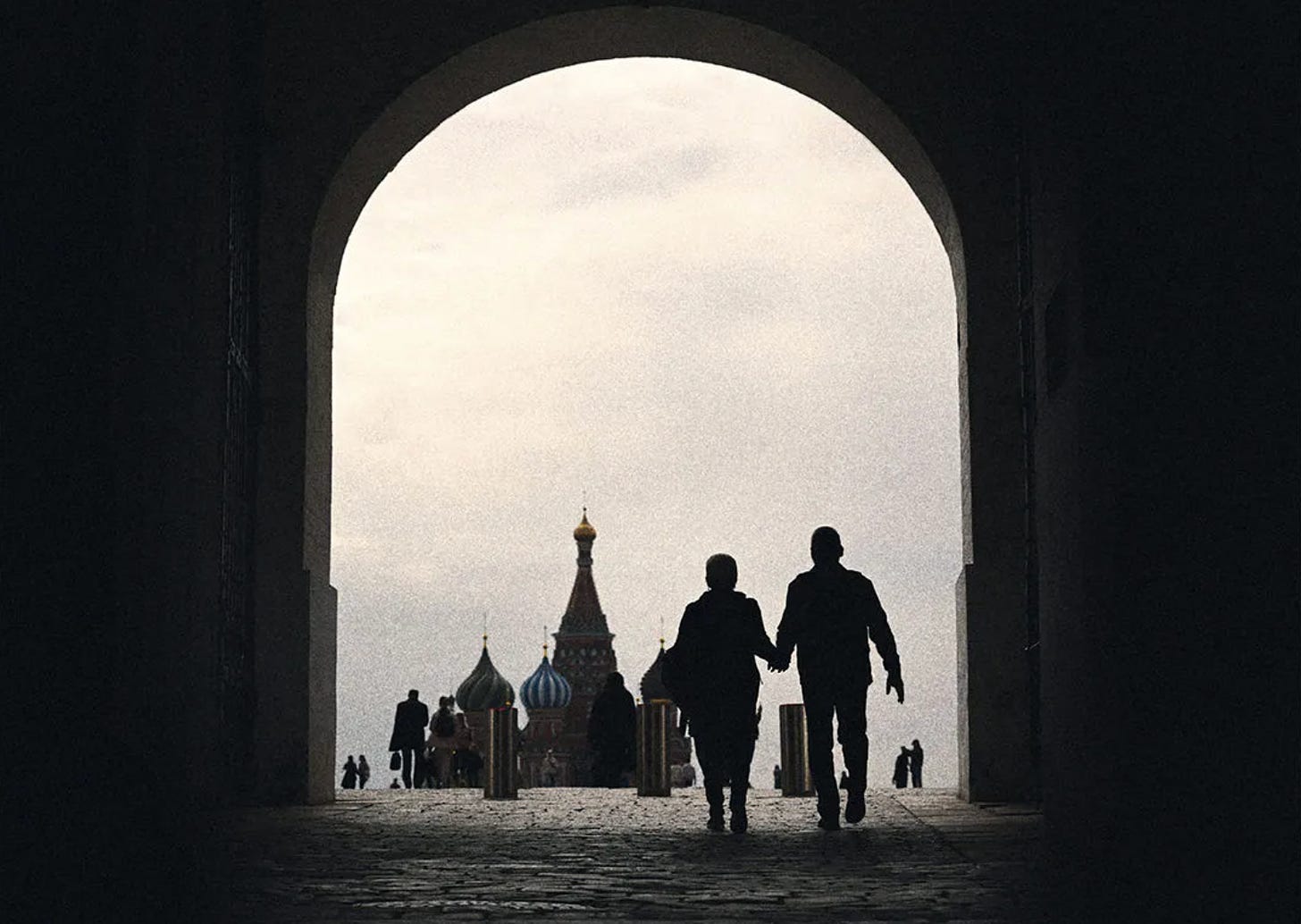
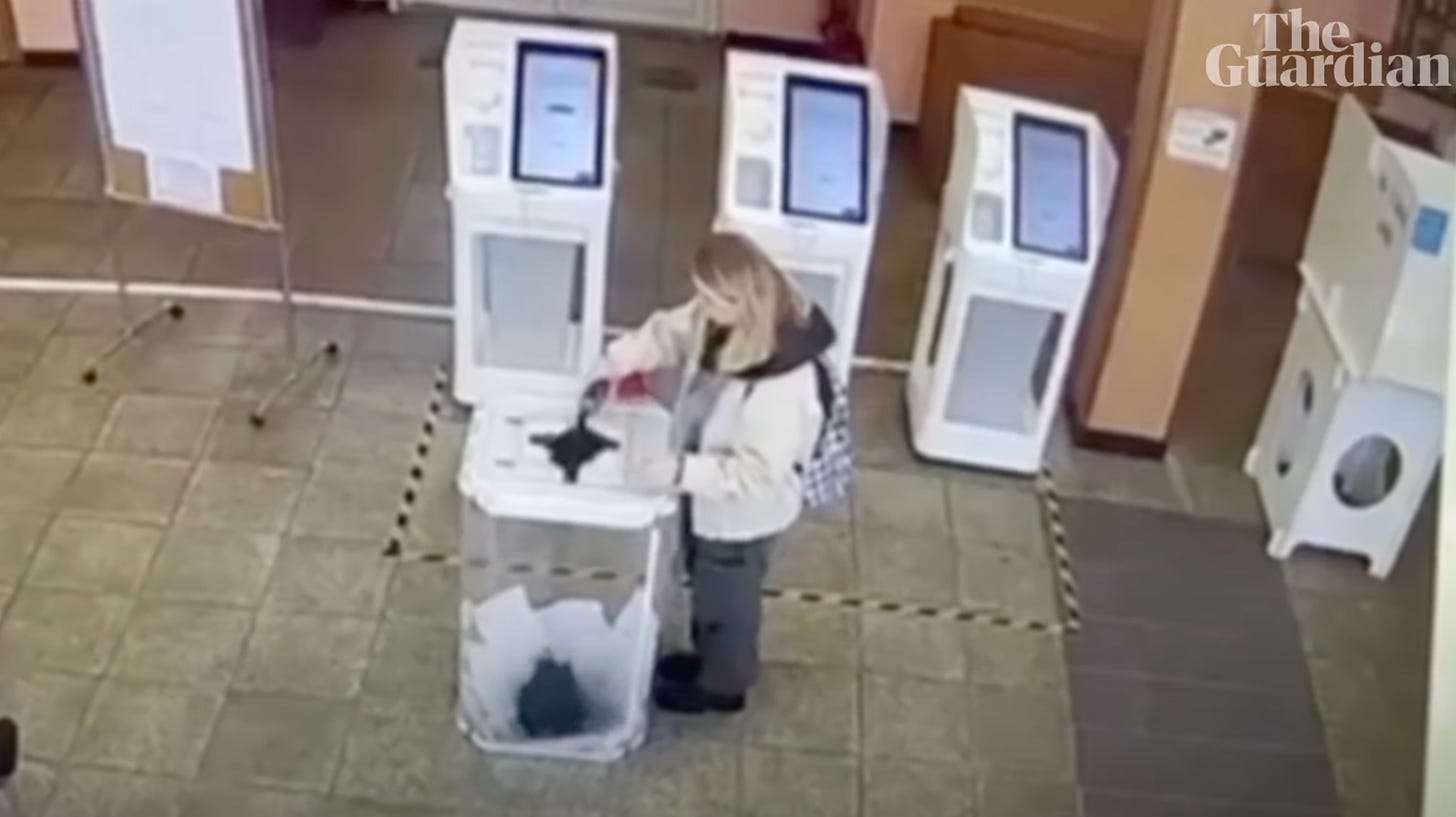


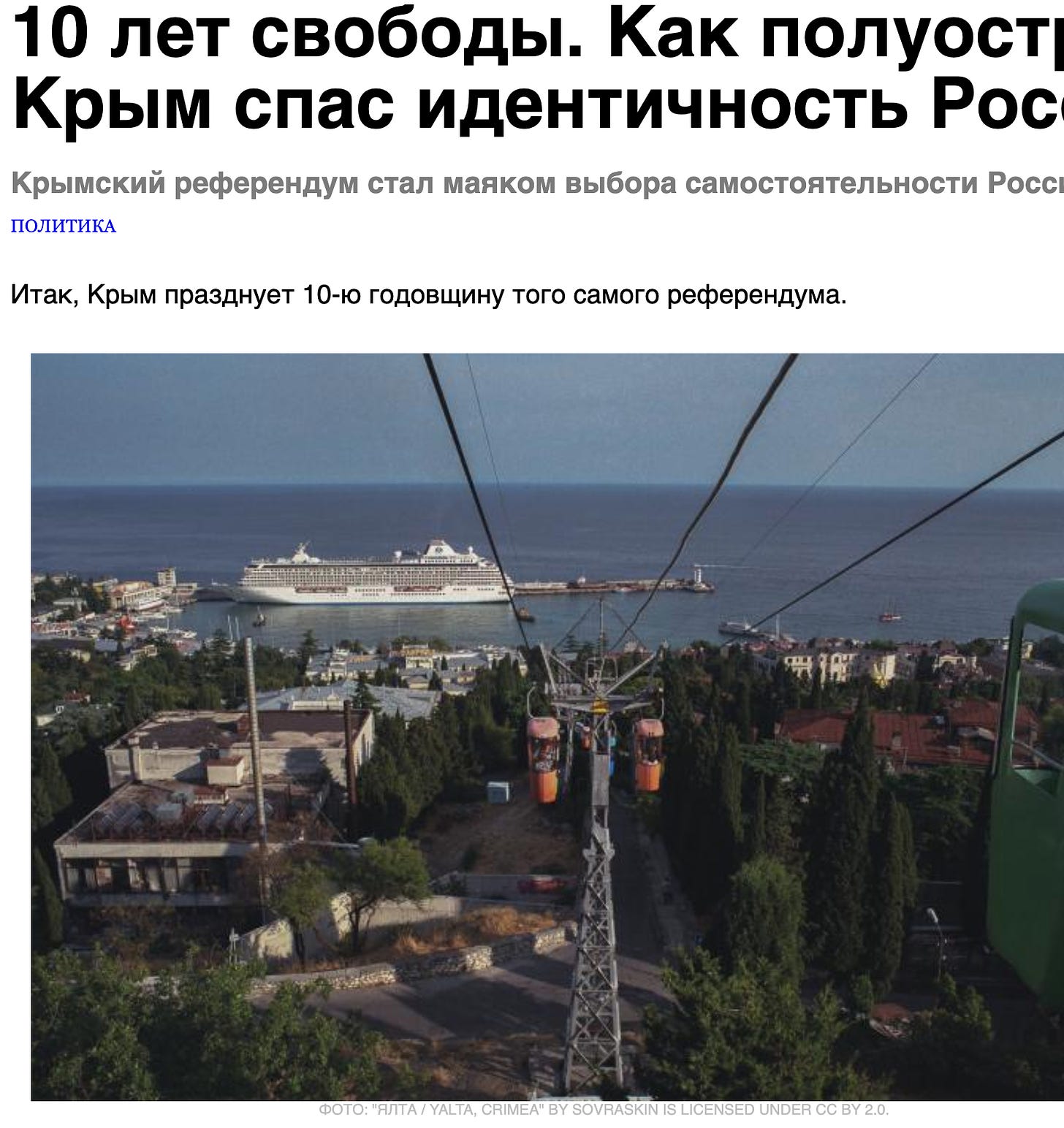


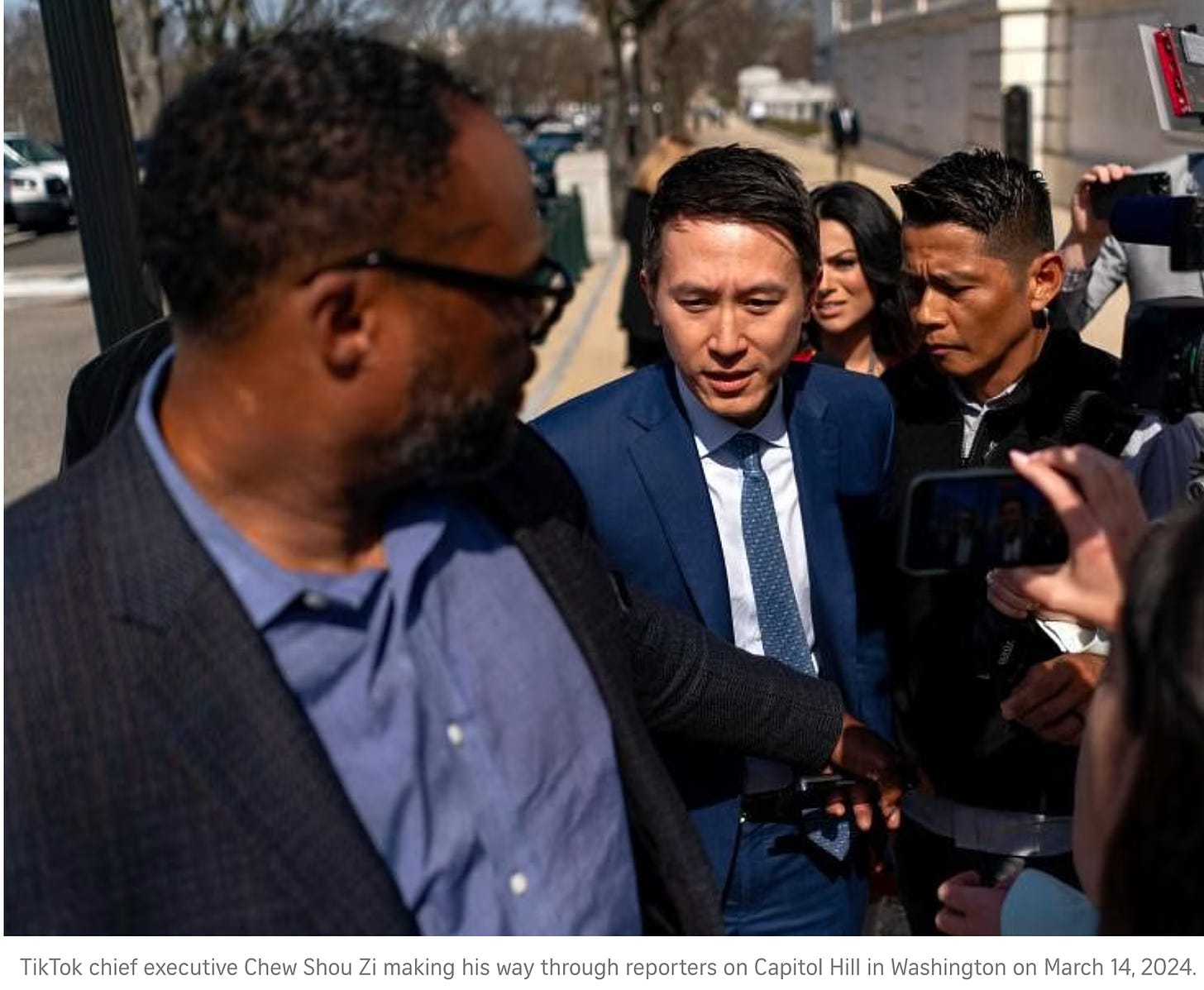

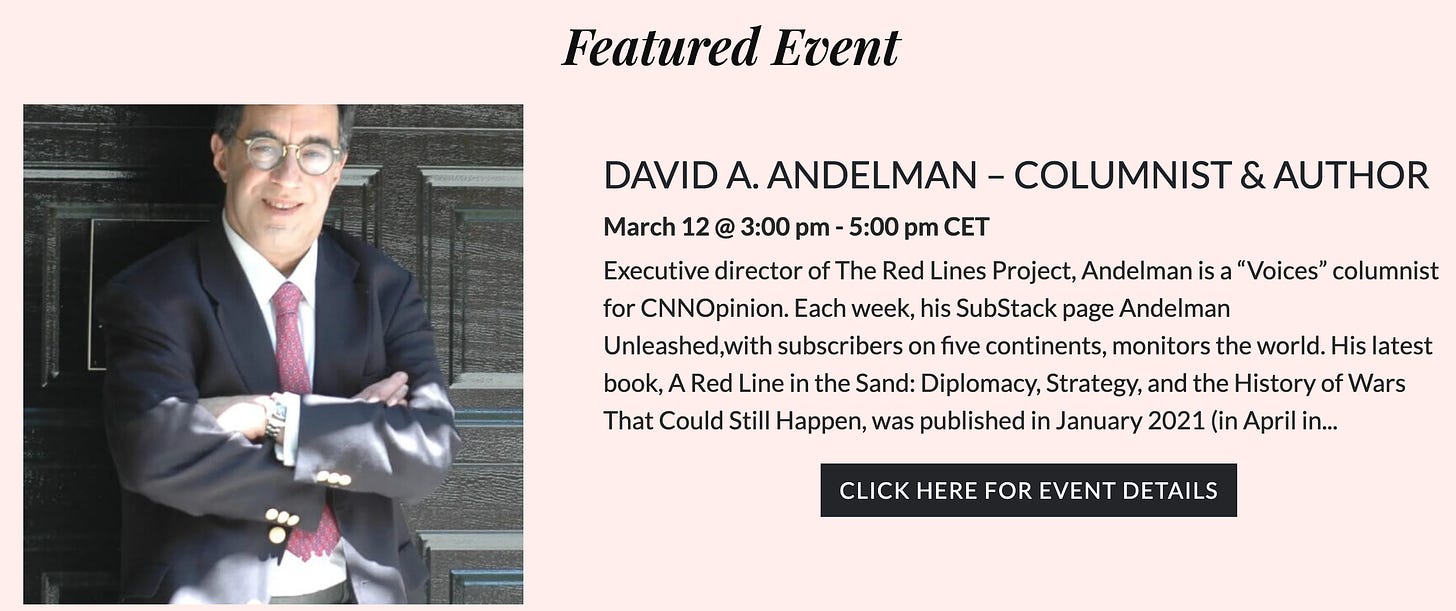
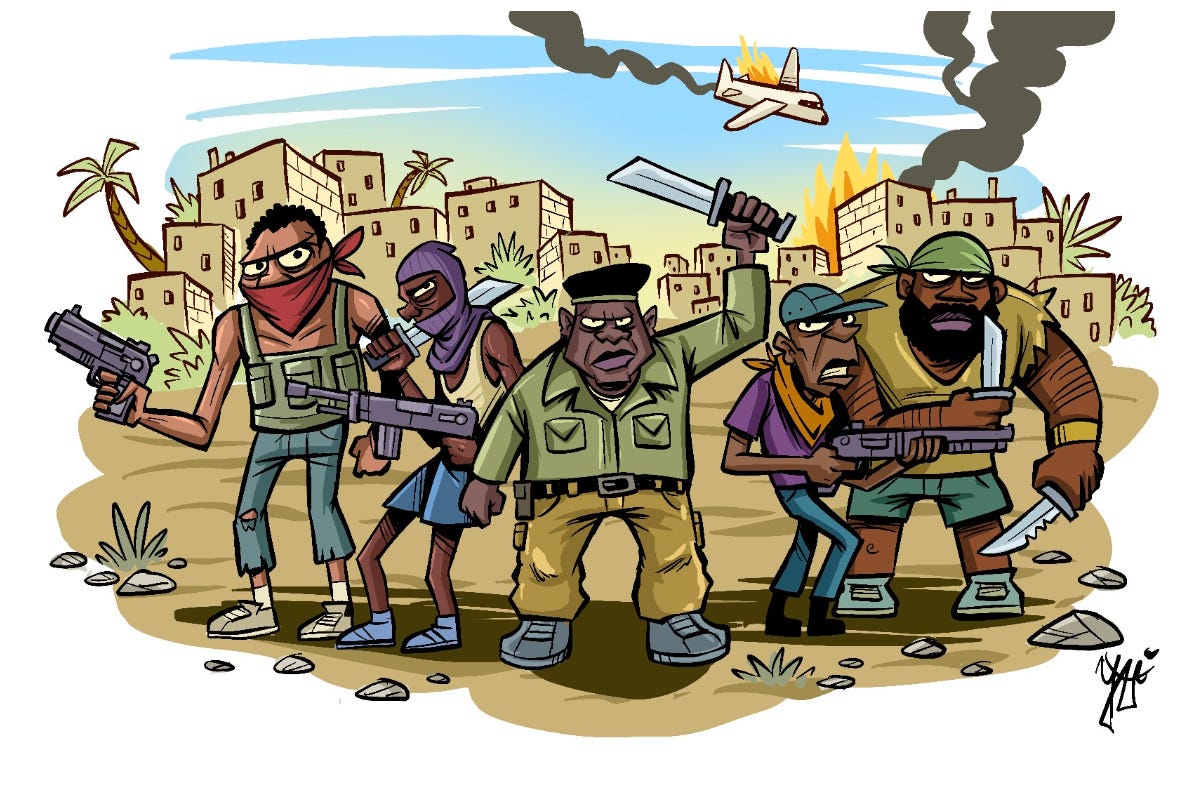

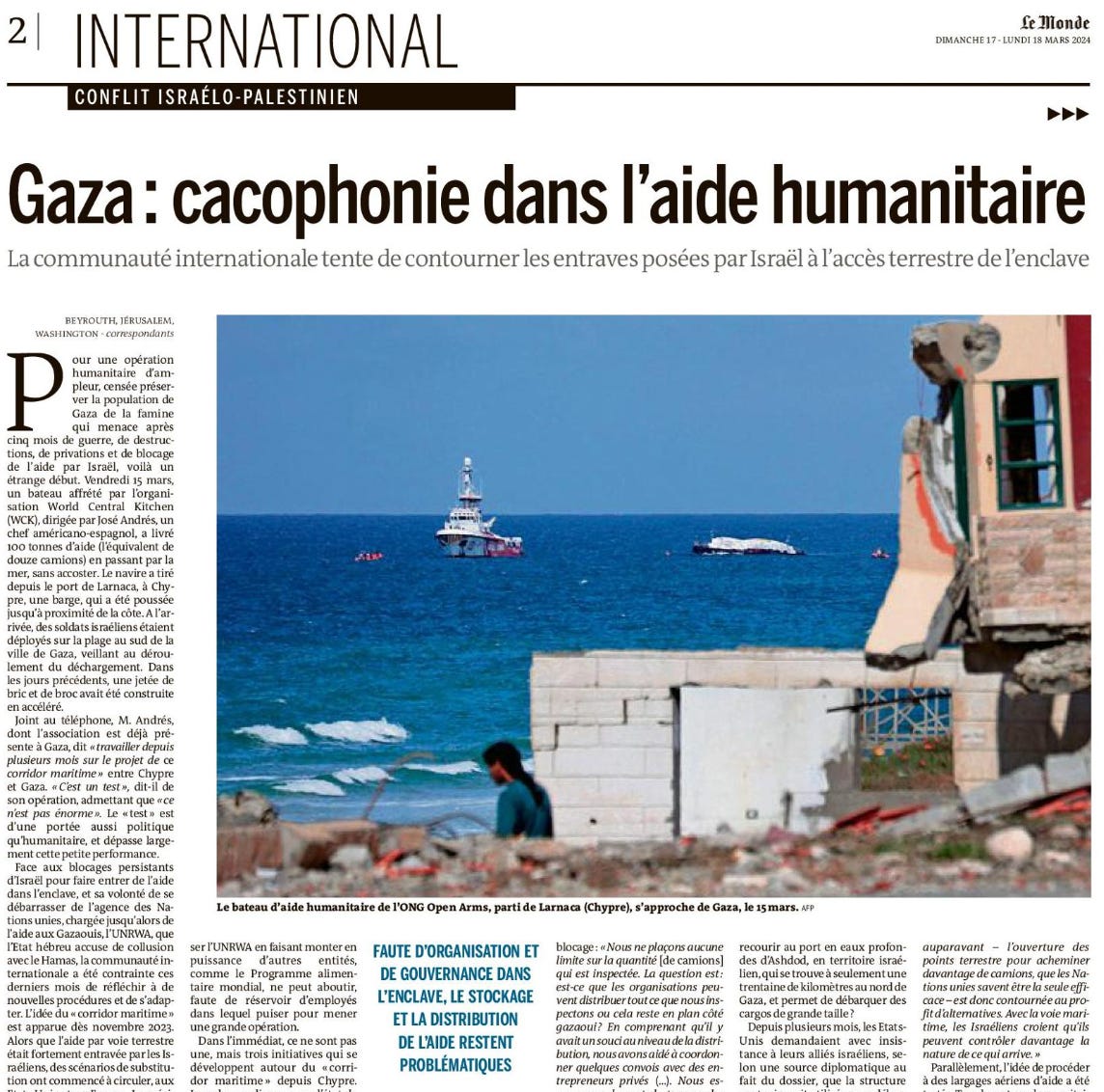

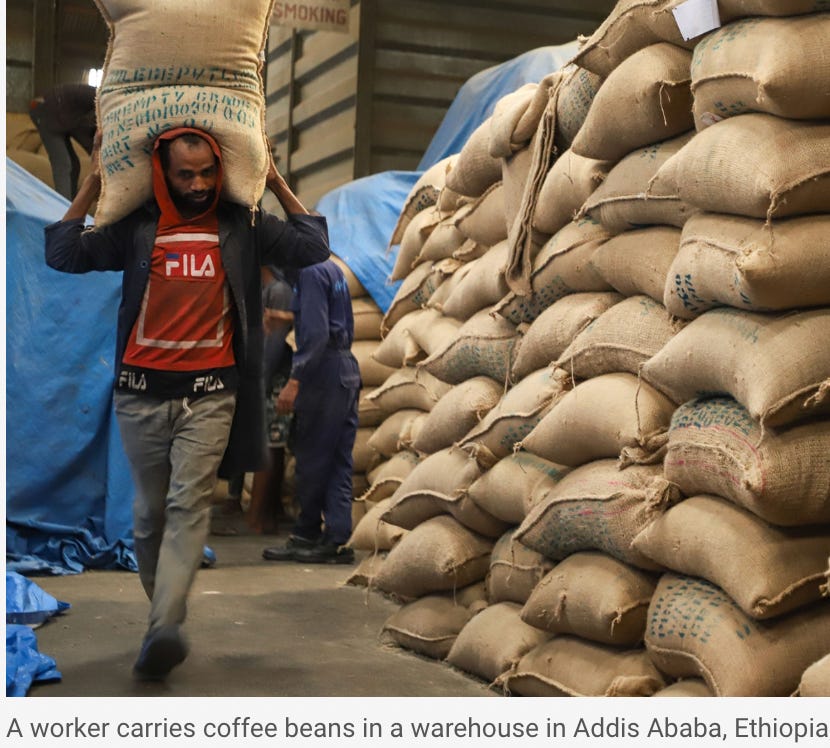

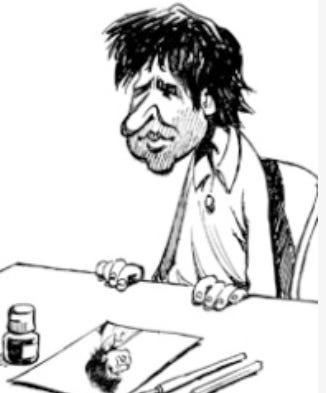

Thank you, as always, Bruno !!
My loyal & smart Unleashed family !!!
;-))